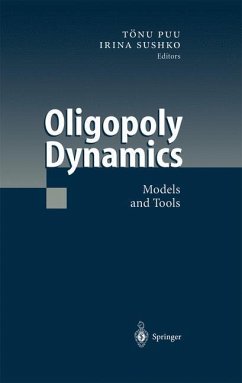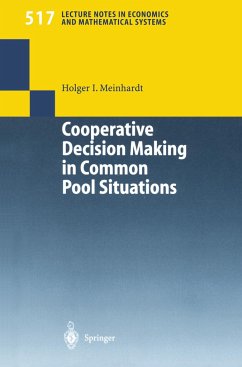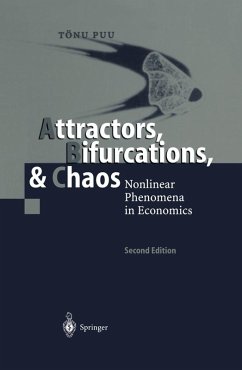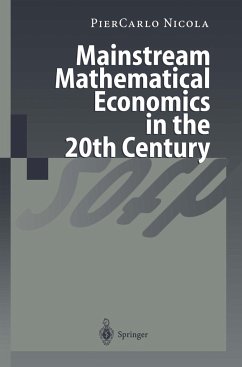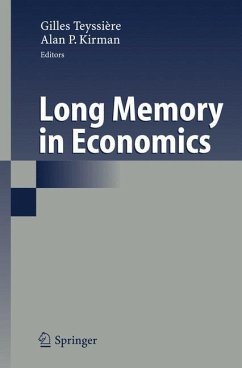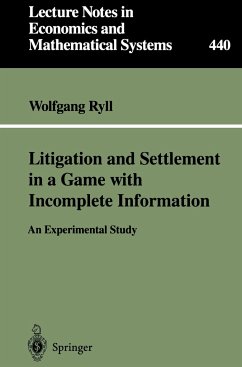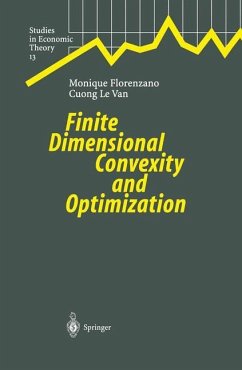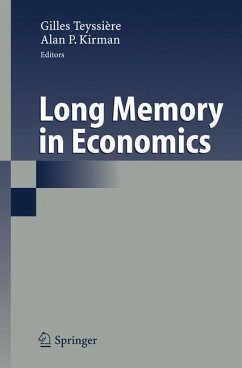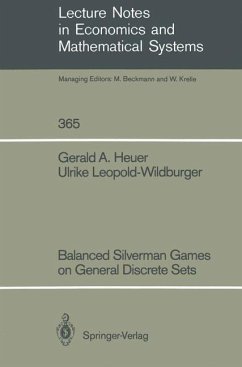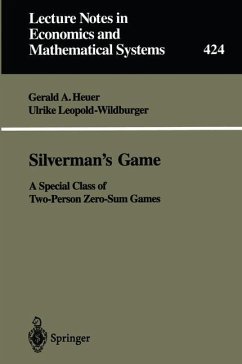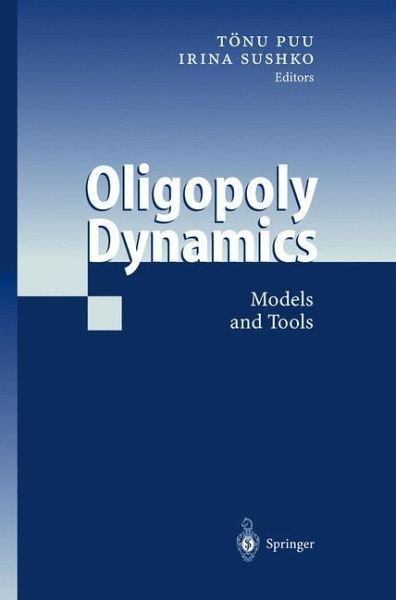
Oligopoly Dynamics
Models and Tools
Herausgegeben: Sushko, Irina
Versandkostenfrei!
Versandfertig in 1-2 Wochen
77,99 €
inkl. MwSt.

PAYBACK Punkte
39 °P sammeln!
These proceedings are from a conference held at the Centre for Regional Science (CERUM) at Umea Umeâ University, Sweden, 17-18 June 2001. Unlike Un1ike many conference proceedings, this volume contains only on1y invited invited contribu contribu tions tions on specified topics so as to make the book coherent and self-contained. The authors and editors hope that this coherence will make the volume use fu1 fuI also as a text for courses in industrial organisation. To this end two chap ters on the history of oligopoly theory, from the beginnings with Cournot 1838, to the present day, and one cha...
These proceedings are from a conference held at the Centre for Regional Science (CERUM) at Umea Umeâ University, Sweden, 17-18 June 2001. Unlike Un1ike many conference proceedings, this volume contains only on1y invited invited contribu contribu tions tions on specified topics so as to make the book coherent and self-contained. The authors and editors hope that this coherence will make the volume use fu1 fuI also as a text for courses in industrial organisation. To this end two chap ters on the history of oligopoly theory, from the beginnings with Cournot 1838, to the present day, and one chapter on modem methods for analysing iterated discrete time maps, have been inserted at the beginning ofthe book. Unlike Un1ike most current literature on games and oligopoly, this book is not focused on the usual topics of game theory: optimal strategies, dominance, and equilibrium. Rather it is the evolutionary dynamics, often of a complex type, inc1uding deterministic chaos, which are in focus. The contributions, after the historical and the methodological introductions, represent various segments of the research frontier in this area, though pains have been taken to tie some of the models to a number of most promising contributions from the frugal period 1929-1941, which have suffered from unjust neglect in the following industrial organisation literature.





